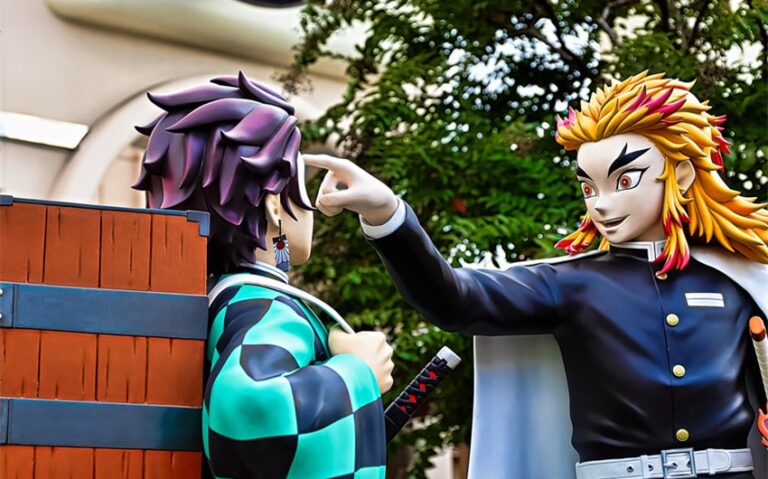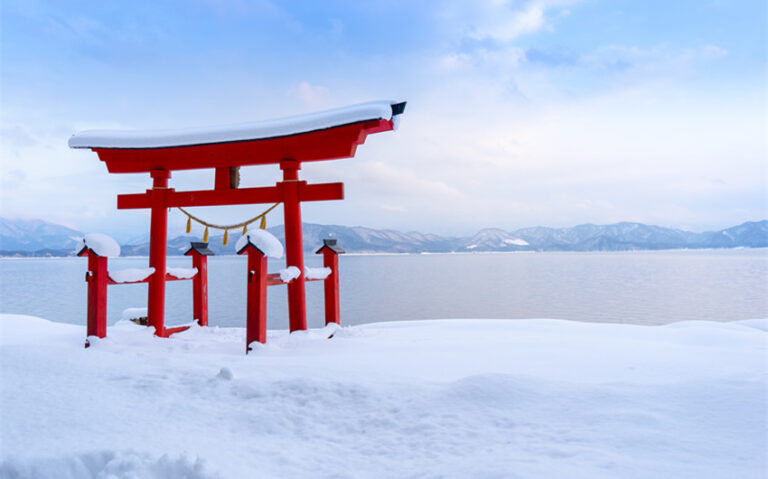53 Poetic Choices for a Japanese Name Meaning Starry Night
Names carry deep meaning, often inspired by nature, emotions, or celestial beauty. In Japanese culture, the night sky has long been a source of poetry and symbolism, representing mystery, dreams, and quiet wonder. Many parents choose names that capture the peaceful brilliance of a star-filled night.
If you’re looking for a Japanese name meaning starry night, you’ll find that the language offers beautiful, poetic options that reflect this magical imagery. Whether for a baby name, a character, or personal inspiration, exploring these names can reveal the elegance and depth of Japanese naming traditions connected to the night sky.
The Meaning and Symbolism of Starry Night in Japanese Culture
In Japanese culture, a starry night is more than just a beautiful scene—it represents mystery, reflection, guidance, and dreams. From ancient poetry to modern symbolism, the night sky has been deeply connected to human emotions, fate, and the universe’s vastness.
1. The Night Sky in Japanese Tradition and Literature
In classical Japanese poetry and literature, a starry night symbolizes longing, solitude, and deep contemplation. The night is seen as a time for reflection and emotional depth, often linked to unfulfilled love and fleeting beauty. The concept of mono no aware (物の哀れ)—appreciating life’s transience—is frequently expressed through celestial imagery in haiku and tanka poetry.
2. The Spiritual and Cosmic Significance of Stars
In Shinto and Buddhist traditions, celestial bodies like the moon and stars are linked to divine guidance, fate, and enlightenment. Many shrines honor celestial deities, and the Milky Way, known as Amanogawa (天の川), is believed to represent the bridge between the human and spiritual realms. Stars also appear in traditional astrology, symbolizing destiny and cosmic influence.
3. Stars as Symbols of Hope and Dreams
Stars are often associated with guidance, ambition, and possibilities. The belief in wishing upon a star (“hoshi ni negai wo” – 星に願いを) reflects the idea that the universe holds endless opportunities for those who dream. In modern Japan, shooting stars (流れ星, nagareboshi) are seen as a sign of luck and hope.
4. The Starry Night as a Symbol of Love and Separation
The night sky often represents distance, longing, and eternal love. Many traditional songs and stories use stars as metaphors for connections that transcend time and space, reinforcing the idea that even when apart, loved ones remain linked under the same sky.
Japanese Names That Mean Starry Night

apanese names are often deeply poetic, drawing inspiration from nature, celestial bodies, and emotions. While there may not be a single, direct translation for “starry night” in a name, various Japanese names capture its essence by combining words related to stars (星, hoshi), sky (空, sora), and night (夜, yoru). Below are some beautiful names that reflect the magic and tranquility of a starry night.
- Hoshizora (星空) – “Starry sky”; a direct representation of a vast, twinkling night sky.
- Amanohoshi (天の星) – “Heaven’s star”; symbolizes divine beauty and celestial wonder.
- Yoruseiza (夜星座) – “Night constellation”; refers to groups of stars that illuminate the dark sky.
- Hoshiyoru (星夜) – “Starry night”; evokes the image of countless stars shining in the night.
- Hoshihana (星花) – “Star flower”; symbolizes a celestial bloom, like stars blossoming in the night sky.
- Yoruhoshi (夜星) – “Night star”; signifies a bright star that guides travelers through the darkness.
- Sorahoshi (空星) – “Sky star”; represents an expansive and limitless celestial beauty.
- Hoshikage (星影) – “Star shadow”; the soft glow of a star reflected on the earth, symbolizing guidance.
- Yorutsuki (夜月) – “Night moon”; represents the peaceful glow of the moon among the stars.
- Hoshikumo (星雲) – “Starry cloud” (Nebula); symbolizes cosmic dust and star formations.
- Tenmon (天文) – “Astronomy”; relates to studying celestial objects and the mysteries of space.
- Hoshiumi (星海) – “Sea of stars”; represents a night sky so vast it resembles an endless ocean of stars.
- Tsukihoshi (月星) – “Moon and star”; symbolizes cosmic balance and harmony.
- Hoshikiri (星霧) – “Starry mist”; evokes the image of stars softly glowing through light fog.
- Yugahoshi (夕星) – “Evening star”; a poetic name for Venus when seen in the night sky.
- Hoshiai (星合) – “Star meeting”; inspired by the idea of celestial bodies aligning, often linked to fate.
- Yoruboshi (夜暮星) – “Dusk star”; represents the transition from evening to night, where the first stars appear.
- Amanogawa (天の川) – “Milky Way”; a famous term in Japan for the galaxy resembling a heavenly river.
- Hoshisuzu (星鈴) – “Star bell”; poetic imagery of stars twinkling like the soft chime of a bell.
- Sorasuzu (空鈴) – “Sky bell”; symbolizes a clear night sky ringing with celestial energy.
- Hoshitsuki (星月) – “Star moon”; symbolizes the deep bond between stars and the moon in the night sky.
- Yorukaze (夜風) – “Night wind”; represents the gentle breeze under a starlit sky.
- Hoshine (星音) – “Star sound”; evokes the poetic idea of listening to the music of the universe.
- Hoshimori (星守) – “Star guardian”; suggests protection, guidance, and cosmic wisdom.
- Hoshisora (星宙) – “Star universe”; symbolizes an infinite and boundless cosmic realm.
- Hoshibana (星華) – “Star blossom”; represents the beauty of stars blooming like flowers in the night.
- Tsukiboshi (月星羅) – “Moon, star, and net”; evokes the image of stars scattered across the night sky.
- Hoshisaku (星咲) – “Star bloom”; symbolizes the moment stars appear in the dark sky.
- Hoshiyume (星夢) – “Star dream”; represents the connection between stars and human aspirations.
- Yoruyume (夜夢) – “Night dream”; evokes the peaceful feeling of dreaming under a starry sky.
- Yoruhane (夜羽) – “Night feather”; symbolizes something delicate and free-floating in the starry sky.
- Hoshihane (星羽) – “Star feather”; represents celestial wings or the movement of shooting stars.
- Hoshisaki (星咲希) – “Star bloom of hope”; a poetic name that symbolizes stars blooming with dreams.
- Yoruhikari (夜光) – “Night light”; represents the glow of stars or moonlight at night.
- Hoshihikari (星光) – “Star light”; symbolizes a guiding star, like the North Star.
- Sorahikari (空光) – “Sky light”; represents the delicate glow that fills the night sky.
- Hoshihanae (星花恵) – “Blessed star blossom”; symbolizes good fortune and celestial beauty.
- Hoshinami (星波) – “Star waves”; evokes the shimmering reflection of stars on ocean waves.
- Hoshimizu (星水) – “Star water”; poetic representation of stars mirrored in a still pond or lake.
- Yorunagi (夜凪) – “Night calm”; represents the stillness and peace of a quiet starry night.
- Hoshinagi (星凪) – “Starry stillness”; symbolizes a quiet, tranquil night filled with stars.
- Hoshiyuki (星雪) – “Starry snow”; represents the twinkling effect of stars in a winter sky.
- Hoshifubuki (星吹雪) – “Starry blizzard”; evokes the swirling motion of stars like falling snow.
- Hoshishizuku (星雫) – “Star droplets”; poetic imagery of dewdrops reflecting the night sky.
- Hoshisato (星郷) – “Star village”; represents a peaceful, dreamy place under the stars.
- Hoshimizuki (星水月) – “Star water moon”; a name that unites celestial beauty and reflection.
- Amanotsuyu (天露) – “Heavenly dew”; represents the morning mist after a starry night.
- Hoshikasumi (星霞) – “Star mist”; symbolizes a dreamy, fog-covered night sky filled with starlight.
- Hoshisawa (星沢) – “Star marsh”; evokes the image of stars reflecting on a still body of water.
- Hoshikiri (星霧羅) – “Star fog veil”; symbolizes a night sky where stars shine through mist.
- Hoshihanae (星花映) – “Star flower reflection”; evokes the poetic image of celestial beauty mirrored in nature.
- Hoshiruka (星流華) – “Flowing star blossom”; symbolizes a shooting star resembling a blooming flower.
- Hoshirui (星涙) – “Star tears”; a poetic name that represents stars twinkling like falling tears.







